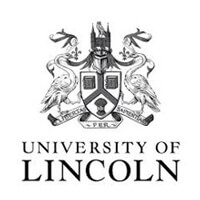fees waived
Geography, BA (Hons)
University of Lincoln, United Kingdom
Subject ranking
UK / Guardian 2025 33rd
UK / CUG 2024 47th
UK / CUG 2025 48th
Costs
food & rentS$17.2K / year
Entry requirements
Scholarships
Unlimited quantity
Unlimited quantity
Unlimited quantity
Unlimited quantity
Limited quantity
Limited quantity
Information
Code
Code
Intakes
Website (External)
Programmes
Information
Duration
2028
Course summary
The BA (Hons) Geography Degree at Lincoln explores social science perspectives on issues of sustainability from local to global scales. It encourages students to develop the analytical, critical and collaborative skills needed to work across broad interdisciplinary issues. Geography is an integrative subject that aims to provide the intellectual tools necessary to understand the relationship between human society and its environment, and the issues that challenge our future. This course is designed to develop subject understanding and geographical skills progressively in the context of real-world problems, enabling students to apply their learning to contemporary global challenges. With Lincoln’s unique focus on the ‘safety and health of the inhabited Earth’, our mission is to deliver a degree that is relevant to the global, environmental and societal challenges for the 21st century. Our academics are experienced researchers investigating key and emerging issues in global development across a spectrum of human geography, in collaboration with academics in other disciplines, including physical geography. Students will engage in research and project work that builds on the expertise of staff. BA and BSc Geography students at Lincoln follow a common central thread of; concept lectures, seminars, small group tutorials, practical teaching of analytical skills through field and laboratory classes, as well as group project work under close personal supervision. In the first year, a series of core modules are designed to integrate both Human and Physical geography skills and concepts. This approach aims to provide a foundation for students to become “geographers” in the true, interdisciplinary sense. Year One consists of a range of Human and Physical geography modules which include both fieldwork and practical sessions, and provide the necessary groundwork for further study. In the second and third years students will focus primarily on the Human Geography pathway but also have the opportunity to study elements of Physical Geography within the context of a broad interdisciplinary approach. Both years comprise a mixture of core modules covering research skills, laboratory techniques, fieldwork and modelling, as well as optional modules, designed to enable students to follow their interests. For the most up to date module information, please visit the course page for this programme on our website. Some programmes provide you with the opportunity to focus your study in a particular area through optional modules. Timetabling arrangements may limit the availability of some optional modules to some students. As the options often reflect staff research interests, they may alter over time due to staff availability. The way students will be assessed on this course will vary for each module. It could include coursework, such as a dissertation or essay, written and practical exams, portfolio development, group work or presentations to name some examples. Throughout this degree, students may receive tuition from professors, senior lecturers, lecturers, researchers, practitioners, visiting experts or technicians, and they may be supported in their learning by other students.Modules
Assessment method
BA and BSc Geography students at Lincoln follow a common central thread of; concept lectures, seminars, small group tutorials, practical teaching of analytical skills through field and laboratory classes, as well as group project work under close personal supervision. In the first year, a series of core modules are designed to integrate both Human and Physical geography skills and concepts. This approach aims to provide a foundation for students to become “geographers” in the true, interdisciplinary sense. Year One consists of a range of Human and Physical geography modules which include both fieldwork and practical sessions, and provide the necessary groundwork for further study. In the second and third years students will focus primarily on the Human Geography pathway but also have the opportunity to study elements of Physical Geography within the context of a broad interdisciplinary approach. Both years comprise a mixture of core modules covering research skills, laboratory techniques, fieldwork and modelling, as well as optional modules, designed to enable students to follow their interests. For the most up to date module information, please visit the course page for this programme on our website. Some programmes provide you with the opportunity to focus your study in a particular area through optional modules. Timetabling arrangements may limit the availability of some optional modules to some students. As the options often reflect staff research interests, they may alter over time due to staff availability.
A local representative of University of Lincoln in Singapore is available online to assist you with enquiries about this course.

